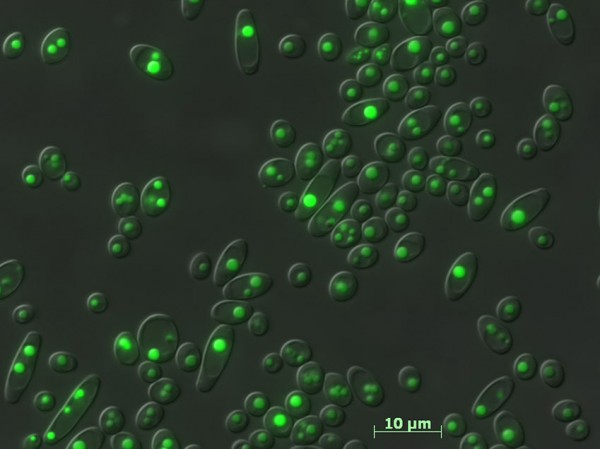Redox metabolism was engineered in Yarrowia lipolytica to increase the availability of reducing molecules needed for lipid production.
The researchers used a mathematical model to identify the bottlenecks in the production of oil in the industrial yeast Yarrowia lipolytica. With the information provided by the model, they designed several metabolic engineering strategies to increase conversion of surplus NADH (a product of glucose degradation) to NADPH, which is needed for lipid biosynthesis. Of the strategies tested, a combination of the two resulted in the most effective lipid yield improvement. The team introduced heterologous yeast and bacterial glyceraldehyde-3-phosphate dehydrogenase (GDP) genes that utilize NADP+ instead of NAD+ w into Y. lipolytica. The team overexpressed an additional bacterialgene in this strain to produce malic enzyme. They combined strategy resulted in an improvement of 25 percent over previously engineered yeasts. In addition, as the engineered Y. lipolytica required less oxygen, it could be grown at higher density in the bioreactor, further increasing biomass and lipid yields. Scientists and engineers could optimize the redox engineering approach reported in this work to convert plant biomass into biofuel precursors and other U.S. Department of Energy-relevant bioproducts.
Source: newswise.com
